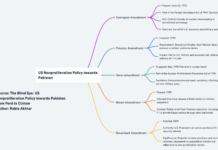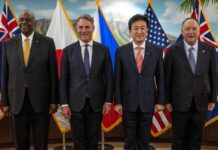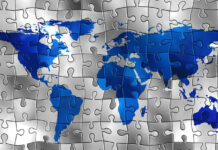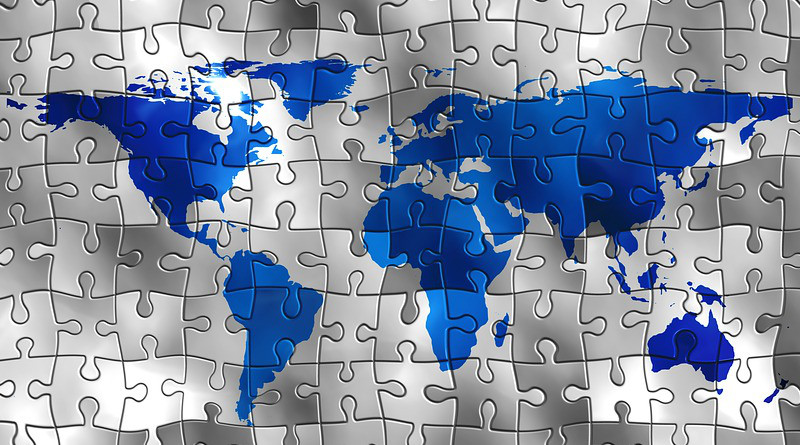Haider Ali
In the 1970s, détente between the United States and Soviet Union offered an opportunity to stabilize political and economic relations during the Cold War. The subsequent decade of the 1980s witnessed the shifting of manufacturing industries from North America to Asia, particularly China, auguring a world of shared economic growth. These realignments, coupled with the advent of technology, especially the Internet, helped the world become more connected. Therefore, the end of the Cold War promised to manifest the potential of Immanuel Kant’s perpetual peace thesis. Francis Fukuyama described this as the “end of history,” and asserted that the “Universalization of Western liberal democracy is the final form of human government.”
The dawn of the 21st century brought with it hopes of a truly globalized world. However, this prospect was attenuated by the dastardly 9/11 attacks, which triggered Washington’s Global War on Terror (GWOT). Consequently, globalization was dealt a severe blow. Enhanced border controls, visa restrictions, and Internet regulations reflected a growing sense of insecurity. Some notable examples of all this include restricted trade post-2008 global financial crisis; the 2016 referendum in the UK – BREXIT; the victories of leaders like Donald Trump in the United States on the populist slogan of “America First”; and the rise of populist leaders like Jair Bolsonaro in Brazil, Matteo Salvini in Italy, Tayyip Erdogan in Turkiye, and Narendra Modi in India. Leaders that preferred protectionist economic growth, caressed political nationalism, and aroused feelings of cultural and religious pride gained a lot of political success. This represents the rise of what is called deglobalization, or the reversal of political, economic, social, and cultural global integration. These proclivities towards deglobalization have greatly impacted the world in more ways than one. Geopolitics has not remained immune to its effects, too. If anything, this phenomenon has certainly had profound impacts on it.
First, deglobalization reshapes geopolitical landscapes through the redefinition of alliances and partnerships. The U.S.-China trade war exemplifies how deglobalization can lead to the fragmentation of the world into economic and technological blocs. The imposition of tariffs by the United States on Chinese goods and the subsequent retaliatory measures by China are not merely economic tools but indicative of deeper geopolitical rifts. This bifurcation extends to the realm of technology, with the U.S. urging its allies to exclude Chinese firms like Huawei from their 5G networks, citing security concerns. Such actions not only strain U.S.-China relations but also compel other nations to choose sides. All this contributes to fracturing global unity and undermining international cooperation.
Second, the retreat from global economic integration heightens national vulnerabilities, making nations more insular and susceptible to external shocks. The COVID-19 pandemic, for example, has starkly exposed the fragility of global supply chains. Countries heavily reliant on global trade for essential goods, such as medical supplies and food, found themselves at significant risk during border closures and export bans. For instance, the initial scramble for personal protective equipment underscored the dangers of overdependence on a few producers and the necessity for diversification and self-reliance, sparking discussions about reshoring manufacturing capacities.
Third, deglobalization impacts global security by exacerbating regional conflicts and tensions. The decline in economic interdependence reduces the cost of conflict for states, as the deterrent effect of mutual economic loss diminishes. An illustrative example is the escalating tension in the South China Sea, where territorial disputes have been intensified by nationalist rhetoric and military posturing. The diminishing economic interdependence among the countries involved emboldens them to raise the specter of military confrontation.
Additionally, the rise of economic nationalism and protectionism as components of deglobalization can fuel internal unrest and add to global inequalities. Policies aimed at protecting domestic industries often result in trade wars, which can lead to increased inflation and reduced economic growth. Such outcomes disproportionately affect the most vulnerable populations, both within nations and globally, potentially leading to social unrest and contributing to the destabilization of regions already beset with economic challenges.
In sum, deglobalization presents a significant set of challenges to the global order, with wide-ranging implications for geopolitics and global security. While it may offer countries the opportunity to reassess and strengthen their economies, the trend towards insularity and fragmentation poses profound challenges. These include the erosion of international cooperation, increased geopolitical tensions, and the undermining of global stability. As the world navigates this complex landscape, the need for dialogue, diplomacy, and embracing multilateralism has never been more critical. In addressing the challenges posed by deglobalization, the international community must strive to balance national interests with the imperative of global security and stability.
Haider Ali is an MPhil Political Science Scholar at the School of Integrated Social Sciences, The University of Lahore.
The views expressed in the article are the author’s own and do not necessarily reflect those of Pakistan Politico.

















